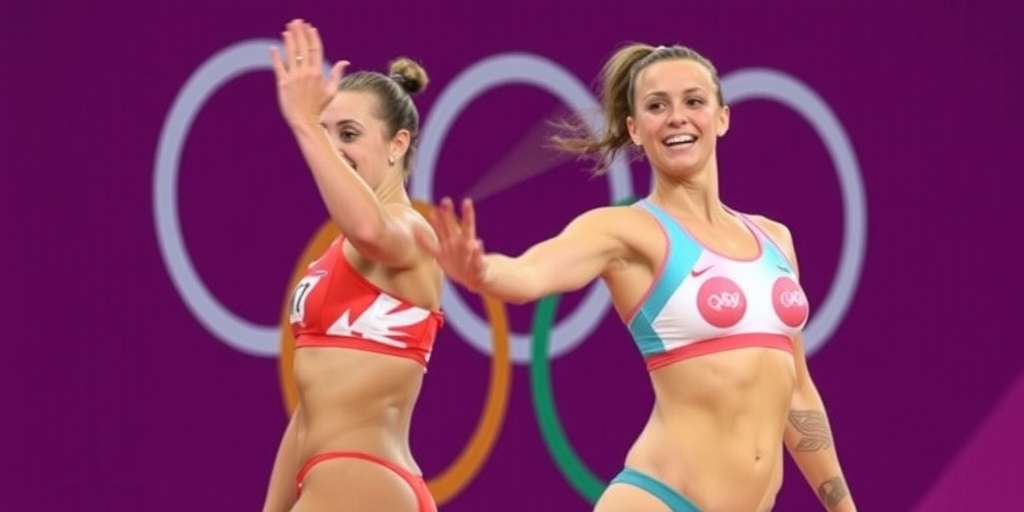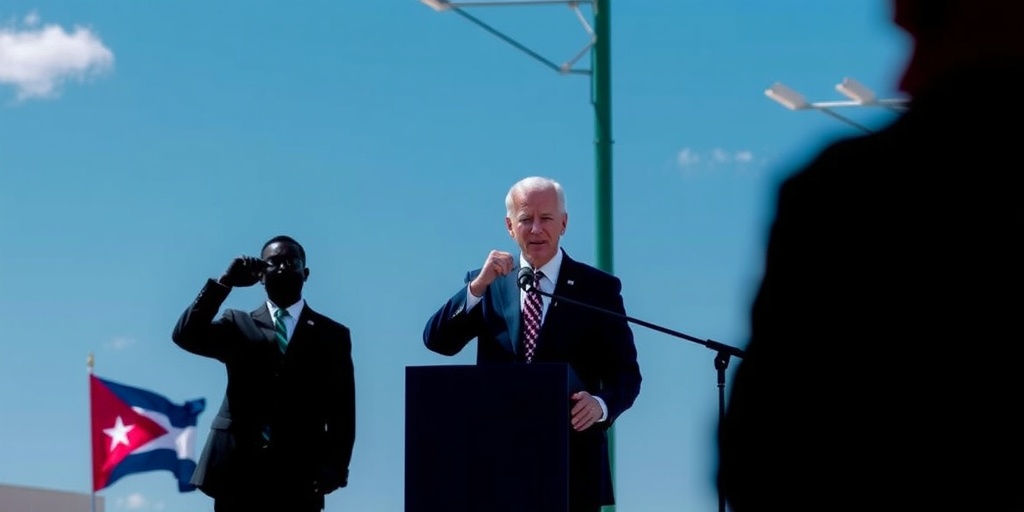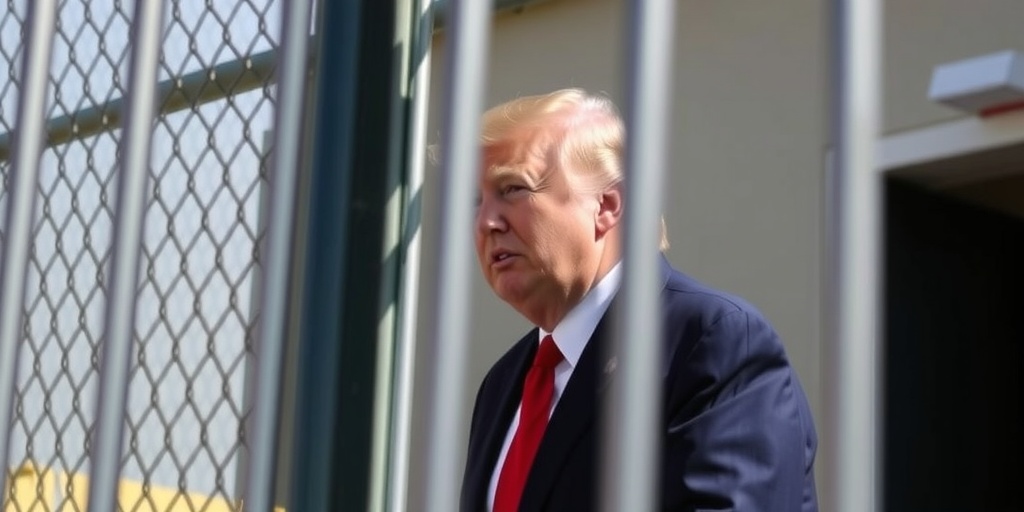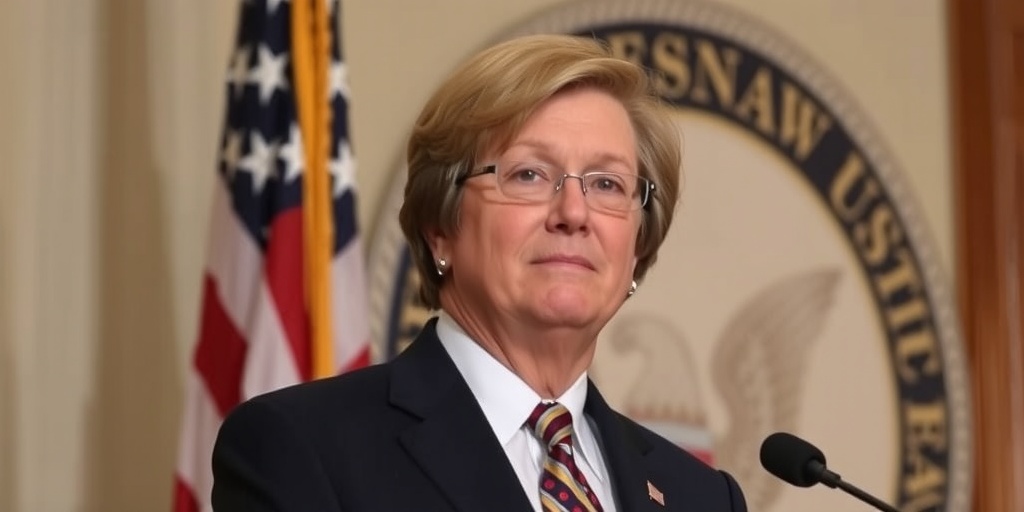Now Reading: Republicans Urge Olympic Committee to Exclude Transgender Women from Women’s Sports
-
01
Republicans Urge Olympic Committee to Exclude Transgender Women from Women’s Sports
Republicans Urge Olympic Committee to Exclude Transgender Women from Women’s Sports

Republicans Push for Biological Sex-Based Eligibility in Women’s Olympic Sports
A coalition of Republican lawmakers on Capitol Hill has taken a firm stance on the inclusion of transgender athletes in women’s sports, specifically calling for the International Olympic Committee (IOC) to base eligibility for women’s athletic competitions exclusively on biological sex. This request comes in the wake of an executive order signed by former President Donald Trump, which aims to prevent transgender women and girls from participating in women’s sports. The push was formalized in a letter addressed to Thomas Bach, the IOC’s outgoing president, and signed by over two dozen Republican representatives and senators, including Senator James Risch of Idaho and Representative Burgess Owens of Utah.
The proponents of this letter argue that the integrity of women’s sports must be safeguarded to ensure fairness and equal opportunity for female athletes. Their call for a shift in policy is particularly timely, as the 2028 Summer Olympics are set to take place in Los Angeles. The IOC currently allows individual sports governing federations to establish their own rules regarding transgender athlete participation, which means the eligibility of transgender women competing in the Olympics is left to the discretion of these federations.
In their letter, the Republicans emphasized the necessity of the IOC to uphold the integrity of women’s competitions, stating, “In preparation for the 2028 Summer Olympics, commitment from the I.O.C. to protect women’s sports is paramount.” The letter reflects a broader effort among Republican lawmakers to influence national discussions around transgender participation in sports—a topic that has been at the center of heated debates in both cultural and political arenas.
This letter particularly resonated in light of recent legislative actions. Just weeks prior, the House passed a Republican-backed bill aimed at instituting a federal ban on transgender girls participating in girls’ sports teams at K-12 educational institutions. The insistence on a biological sex-based framework echoes sentiments expressed by various Republican leaders who assert that allowing transgender women to compete in women’s sports undermines the achievements and opportunities of biological female athletes.
Furthermore, the backdrop of these discussions includes notable developments from the ongoing global sports landscape. During the 2024 Paris Olympics, strict eligibility guidelines were established that effectively barred transgender women who had experienced male puberty from competing in swimming, cycling, and track and field events. These measures further illustrate the growing concerns regarding equity in sports and the challenge of reconciling inclusion with fairness in competitive environments.
The influence of Trump’s executive order from February 2023 also looms large in the context of this debate. In that order, he instructed Kristi Noem, the Secretary of Homeland Security, to take a stance against athletes whom he alleged were “fraudulently entering the United States while identifying as women athletes.” This directive raised significant discussions around immigration policy as it intersects with the rights of transgender individuals, particularly those seeking to compete on an international scale.
As the GOP continues to amplify its efforts to reshape policies regarding transgender athletes, the ramifications of these discussions extend beyond sports and delve into the broader social implications of gender identity and equality. Supporters of the proposed policy argue that it is essential for safeguarding women’s sports, while opponents view it as discriminatory against a marginalized community.
As officials from the IOC prepare for meetings to elect a new president and finalize plans for the 2028 Summer Games, the letter from the Republicans presents a clear agenda aimed at influencing the upcoming policies governing Olympic competition. The outcome of these deliberations will likely set a significant precedent for the future of inclusivity in sports, either reinforcing traditional classifications based on biological sex or potentially paving the way for a more inclusive approach that recognizes gender identity.
With the debate over transgender participation in sports showing no signs of abating, the dialogue surrounding such policies continues to resonate across American society, highlighting the complexities involved in balancing inclusivity with competitive equity. Whether the IOC will heed the call of these lawmakers remains uncertain, but their unified stance indicates a determined effort to shape the narrative leading into the next Olympic Games and beyond.
Stay Informed With the Latest & Most Important News
Previous Post
Next Post
-
 01New technology breakthrough has everyone talking right now
01New technology breakthrough has everyone talking right now -
 02Unbelievable life hack everyone needs to try today
02Unbelievable life hack everyone needs to try today -
 03Fascinating discovery found buried deep beneath the ocean
03Fascinating discovery found buried deep beneath the ocean -
 04Man invents genius device that solves everyday problems
04Man invents genius device that solves everyday problems -
 05Shocking discovery that changes what we know forever
05Shocking discovery that changes what we know forever -
 06Internet goes wild over celebrity’s unexpected fashion choice
06Internet goes wild over celebrity’s unexpected fashion choice -
 07Rare animal sighting stuns scientists and wildlife lovers
07Rare animal sighting stuns scientists and wildlife lovers





















